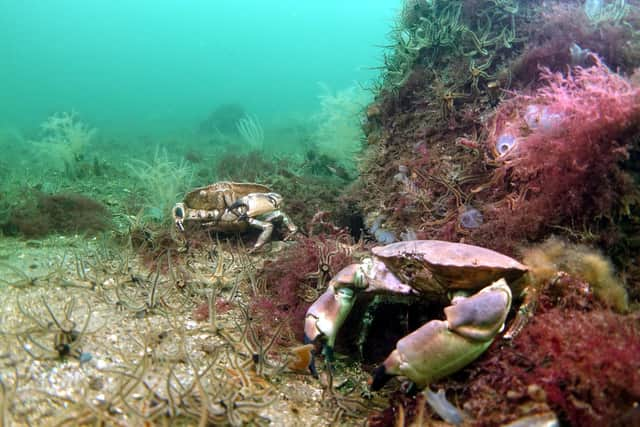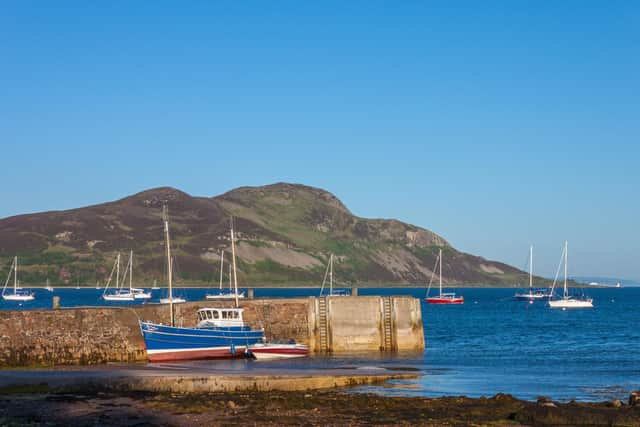Marine life at risk without stricter protection, experts warn
While swaths of the nation’s waters are already subject to an existing network of legal safeguards, the powers are insufficient in order to protect rare species, according to those behind the Saving Our Seas Through Law project.
The initiative, a collaboration between the University of Edinburgh and the Community of Arran Seabed Trust (COAST), is calling on the Scottish Government to designate one tenth of Scottish waters as strictly protected areas, also known as marine reserves.
Advertisement
Hide AdAdvertisement
Hide AdThe step would impose a blanket ban on practices including fishing, fish farming, mining and dredging in sensitive coastal areas.
James Harrison, a member of the project and professor of environmental law at the university, said that the longer more rigorous protections are delayed, the greater the risk to priceless marine resources.
While there are 23 nature conservation Marine Protected Areas (MPAs) across Scotland’s inshore waters, almost all of them are designated as ‘multi-use’. That, said Mr Harrison, offered a weaker form of protection compared to other statuses.
The project has highlighted the MPA in place in waters around Canna and Rum as an example of where the existing designation lacks adequate fishing management measures. The area is home to the UK’s only colony of rare fan mussels.


Mr Harrison said: “A new system of strictly protected marine areas can offer comprehensive protection for the most valuable biodiversity hotspots. It will give our seas a chance to recover from the pressures to which they have been exposed over the past century."
Mr Harrison said politicians must “act urgently and with sensitivity” to roll out the stricter protections while balancing conservation, commercial and leisure needs.
Other areas where Saving Our Seas Through Law say the existing MPAs are insufficient include the Clyde Sea Sill between Kintyre and Galloway, as well as the waters between between Fetlar and Haroldswick in Shetland.


Researchers pointed to the success of the Lamlash Bay ‘no take zone’ off the Isle of Arran, which is part of a much larger marine protected area.
Advertisement
Hide AdAdvertisement
Hide AdLucy Kay, COAST’s MPA project officer, said: “The benefits of effective marine protection are clear. Strong action led to the establishment of the Lamlash Bay no take zone and protection for parts of the South Arran MPA, and we now urgently need more such decisive action by the government to support the recovery of Scotland’s seas.”
A spokesman for the Scottish Government aid: “Our MPA network already covers 37 per cent of our seas and we are committed to delivering fisheries management measures for existing sites where these are not already in place by March 2024.
“We will also designate highly protected marine areas (HPMAs) covering at least 10 per cent of our seas by 2026. HPMAs will be a major advance in conserving and enhancing Scotland’s marine biodiversity.
“The process to select and designate sites must be fair, open and transparent and follow due statutory process. We will ensure that stakeholders, including marine industries and the coastal communities that depend on them, have the opportunity to participate fully at all stages. We will of course be happy to consider this group’s proposals as part of this process.”
A message from the editor:
Thank you for reading this article. We're more reliant on your support than ever as the shift in consumer habits brought about by coronavirus impacts our advertisers. If you haven't already, please consider supporting our trusted, fact-checked journalism by taking out a digital subscription.
Comments
Want to join the conversation? Please or to comment on this article.
